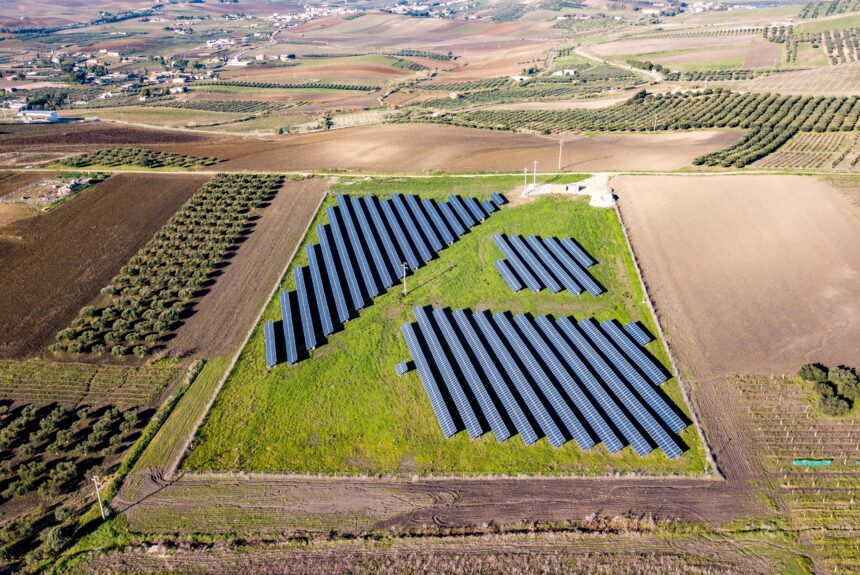Global inflation is crippling climate change solutions. Worsening economic conditions, caused by inflation and excessive regulations, deter investors from gambling on emerging technologies. For countries that remain committed to decarbonising, policy reforms should reduce tax burdens, tackle inflationary pressures, and stop playing favorites with energy sources, to attract increasingly scarce capital to secure cheaper, cleaner, and more reliable energy supplies.
>>>READ: Want to Cut Inflation and Emissions? Cut Tariffs
In the United States, the Biden Administration canceled the construction of the Keystone XL pipeline, causing market speculation about constricted fuel supplies to increase gas prices. Further fears of a hostile regulatory environment, produced by moratoriums on oil and gas extraction leases on federal lands, diminished investor confidence. White House press secretary Karine Jean-Pierre reaffirmed the Administration’s commitment to ending fossil fuel use. Policies that restrict domestic resource development not only curtail economic growth and job creation, but also drive up global emissions by increasing emissions from dirtier suppliers. Furthermore, we rely on the same oil and gas companies that Biden promised his policies would drive to extinction to invest in clean alternative energy sources.
The ‘Big Six’ – BP, Shell, Total, Eni, Chevron, and Exxon Mobil – have committed billions to transitioning, increasing shares of their generation capacity to renewables. This is because companies have an incentive to make their business models sustainable, and their customer bases healthy and happy, in order to stick around and outpace their competition. Sabotaging their ability to make profits during a low-carbon transition impedes the rate at which clean and affordable energy is delivered to consumers.
Climate solutions should involve eliminating emissions; not ceasing the use of energy sources. Fossil fuel company Equinor has pledged thirty percent of its capital expenditure by 2025 to developing renewables alongside carbon capture and storage technologies. If carbon emissions can be captured, and repurposed for coating wind turbine blades, feeding vertically-farmed crops, or making versatile nanomaterials like graphene, then the oil and gas industry can continue production without worsening climate change. Fossil fuel companies must not be unduly punished by government because consumers still rely on their products, and innovators still rely on their investments.
In the UK, former Chancellor Rishi Sunnak sought to impose a one-off windfall tax on oil and gas producers’ profits, to raise £5bn in revenue for £400 in recompensatory measures to offset an eleven percent inflation rate faced by consumers. Inflation in the UK is a self-inflicted wound. The Bank of England was printing £150bn a month in quantitative easing, to pay for pandemic policies, by November 2020. Price caps on energy bills have produced an arms race between consumers, producers, and regulators, struggling to keep pace with the wholesale price of gas exceeding the profit ceiling. Half the price of every litre of petrol is tax, meaning filling a family car costs £100. However, the government has been warned that their windfall tax will deter investment, impair market competition, and drive up fuel costs in the long-term. If the new Chancellor, Nadim Zahawi, were to apply supply-side tax cuts instead – including to the quarter of household energy bills which subsidise the renewables industry – he would see more investment attracted, and lower consumer costs, in Britain’s energy sector.
One way to attract that investment is to provide tax relief for investment in clean infrastructure and energy production. Rather than predicating a business’ environmentally conscious activities on subsidies from international institutions and holding firms, you could exempt shareholders’ returns on investment from income tax instead. A clean asset bond programme could integrate qualifications for industries eligible for tax exemption on returns on investment into the existing bond market.
>>>READ: The Latest Development for Clean Energy Innovation
Legislators could also designate economically deprived areas ‘Eco-tunity Zones’, to invite clean capital investment. Modeled on Senator Tim Scott’s ‘Opportunity Zones’, this initiative would defer capital gains tax for businesses that invest in clean infrastructure or industries within low-income neighborhoods. The programme could be piloted, and when it proves investment can be encouraged at a local level, can be expanded to establish cross-border tax exemption reciprocity for low-carbon investments.
These policies could replace the Environmental, Social, and Governance Scores that prescribe many businesses to greenwash their portfolios with eco-conscious investments, to secure subsidies from hedge funds and holding firms. Intended to measure ‘corporate social responsibility’, ESGs remain impossible to objectively measure, and so render much of the investment in the environmental sector performative, and ineffective. ESGs are floundering thanks to inflation, and have come under scrutiny from conservative legislators who are concerned that they pressgang businesses into supporting social causes which circumvent Congressional legislation. Clean tax cuts empower market actors instead and devolve decision-making away from a monopoly enjoyed by unelected institutions.
Inflation produced by insecure supply chains, irresponsible monetary policies, and burdensome taxation is anathema to innovation. If governments really care about the environment, they will rescind the reach of the state and allow energy suppliers and investors to get on with funding the clean technologies of our future.
Connor Tomlinson is the Head of Research for the British Conservation Alliance. He appears regularly in American Spectator and on talkRadio. Follow him on Twitter: @Con_Tomlinson
The views and opinions expressed are those of the author’s and do not necessarily reflect the official policy or position of C3.
